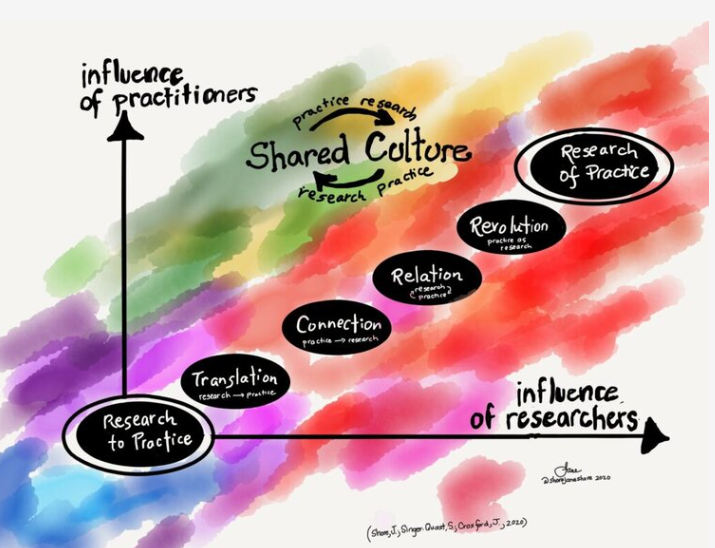Interview on Evaluation with father and daughter team Patton and Patton
Michael Quinn Patton and Charmagne E. Campbell-Patton, co-authors of the fifth edition of Utilization-Focused Evaluation, are the Mentors in Residence for Methodspace in May 2022. For a discount on their book, use the code: MSPACEQ222.
SAGE: Michael, you wrote the first edition of Utilization-Focused Evaluation in 1978 with new editions about every 10 years. But in this new 5th edition you have a co-author for the first time. Tell us about her.
MQP: As you note, I've been an evaluation practitioner now for five decades. I’ve written several evaluation books, including four prior editions of this book. I've been president of the American Evaluation Association and have received several evaluation awards. But nothing in my career has given me as much satisfaction and joy as my daughter Charmagne’s decision to become an evaluator, to join me in what is now our evaluation consulting business, Utilization-Focused Evaluation, and become co-author of this fifth edition.
Several second-generation evaluators have emerged in the last two years which, I think, bodes well for the future of the profession. Our children witness up-close what the life and work of an evaluator is like, so choosing to join the profession is validation of the profession and its values. Second-generation evaluators know what they're getting into, have seen the ups and downs of evaluation practice observed through their parents.
SAGE: Charmagne, tell us how you decided to become an evaluator.
Charmagne: Though I grew up with not just one, but two evaluator parents, I did not grow up dreaming of becoming an evaluator. Rather, what I learned from watching them was that I could do something that I cared about and that would contribute to improving my community and the world. As a White descendent of settler colonialists, I see it as my responsibility to work to dismantle the systems of oppression that my ancestors built. After graduate school, I entered the non-profit sector with a desire to align my work with my values. Through my work as a program manager at an education non-profit, the importance of evaluation was clear. I often leaned on my Dad’s support and mentorship as I navigated our attempts to measure global competence in youth and track program developments in the highly complex, dynamic education system. The more I worked with Michael and saw the value in evaluation first hand, the more I felt called to join him more intentionally in that work. I also saw the value that being a consultant offered as I entered parenthood and desired more flexibility in my work life.
SAGE: How has the field of evaluation developed over the last 50 years Michael?
Patton and Patton
MQP: Those of us who helped create what is now the profession of evaluation are called “accidental evaluators.” We came to this work without explicitly deciding to become an evaluation professional because the profession did not exist. We stumbled our way into this emerging field and helped build it. But 50 years ago there were no evaluation associations, conferences, journals, training programs, websites, or communities of practice. Those doing evaluation were social scientists, program staff, researchers, and managers who picked up an evaluation assignment here or there. Gradually, a profession emerged from the fog of diverse evaluation efforts, associations were founded, journals were created, books were published, conferences were held, training programs were organized, and young and emerging evaluators were welcomed into the rapidly growing profession. Today evaluation is a global profession with more than 75,000 professionals and more than 200 voluntary professional associations at country, regional, and international levels. Today, people can choose to enter the evaluation profession and get formal training to do so. Most making that decision want to do work that is meaningful and useful. Utilization-focused evaluation emerged as a distinct approach 50 years ago to address those foundational values: making evaluation meaningful and useful.
Now we are seeing the emergence of second-generation evaluators several of whom we know. Like Charmagne, they come into the profession with a strong sense of commitment and deeply held values, wanting to make a difference in the world, and believing that practicing evaluation is a way to do so. Our hope is that for those of you new to evaluation, your engagement with this book, and with utilization-focused evaluation, will encourage you to join our ranks. For those of you who are long-time practitioners, we hope that this new edition offers affirmation and revitalization.
SAGE: So, Charmagne, you bring the perspective of a new generation to this book from you’re your evaluation practice.
Charmagne: While it’s true that my generation has had more opportunities for official training and intentionality around becoming an evaluator, my journey still feels largely accidental.
Over the past fifteen years, I have served as an internal and external evaluator, consulted with small local non-profits, government agencies, international organizations and multi-million dollar foundations, and worked across a range of issues from criminal justice reform to youth civic engagement. What I have seen is that utilization-focused evaluation continues to deeply resonate with people who authentically want to make a difference in the world. As more organizations adopt a focus on equity and sustainability, evaluators play a critical role in supporting accountability and learning towards these important goals. To do so, however, requires that we follow the lead of the evaluators of the global majority (Black, Indigenous and people of color), who have been calling for the field of evaluation to reconcile its relationship with colonialism and white supremacy. In this new edition, we have given more attention to the role of utilization-focused evaluation in this effort. There is much more work to be done and we are still learning as we go. We hope to have readers join us on this journey, rooted in relationships. It is truly a family affair.

















Tips on grading and marking to make it relevant and useful for students’ future research.